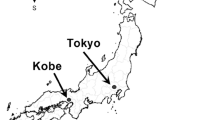Abstract
This paper focuses on the actual conditions and the formative process of collaboration toward the establishment of resource circulation in society. The subject of this research is the Aito Yellow Nanohana Eco Project, a recycling system based on rape blossom cultivation in Aito Town, Japan. The main findings include: (1) This regional system can be classified into nine sections: rape blossom cultivation, rape blossom harvest, extraction of rapeseed oil, manufacture and sale of rapeseed oil, use of rapeseed oil, collection of waste oil, manufacture and sale of soap, refinement to bio-diesel fuel (BDF) and the use of BDF. (2) This regional system was established in 1998. It was formed gradually, in parallel with the movement toward environmental improvement. (3) The Environmental Co-operation and the Town Office played major roles in the establishment and management of the system. Besides these two bodies, the regional system comprises 14 bodies such as enterprises, residents, elementary and junior high schools tourists, etc. (4) The incentives to participate in the Nanohana Project are numerous. They can be divided into approximately five categories: economic profit, the promotion of environmental activity, social service (public welfare), leisure and environmental education.




Similar content being viewed by others
References
Fujisawa N, Tanizawa I, Itonaga K (2001) The actual condition of the connection system for concerning promotion of refuse of organic recyclable resources by agriculture, the stock-raising industry and the food allied industry and body: engaging of the agriculture production corporation the association which makes use of agricultural resources in Chiba prefecture Choshi city(in Japanese). Papers on Environmental information science, vol 15. Center for Environmental Information Science, pp 291–296
Hall DO, Scrase JI (1998) Will biomass be the environmentally friendly fuel of the future? Biomass Bioenergy 15:357–367
Hidaka M, Senga Y, Nakajima M (2004) The actual condition of recyclingbased society by corporate management index—a case study of “Aito Yellow Nanohana Eco Project’’ in Aito Town, Shiga Pref. (in Japanese). Papers on environmental information science, vol 18. Center for Environmental Information Science, pp 67–72
Hoogwijk M, Faaij A, Broek R, Berndes G, Gielen D, Turkenburg W (2003) Exploration of the ranges of the global potential of biomass for energy. Biomass Bioenergy 25:119–133
Karaosmanoğlu F, Tetik E (1999a) Vegetable oil fuels: a review. Energy Sources 21(3):221–231
Karaosmanoğlu F, Tetik E, Gürboy B, Sanl I (1999b) Characterization of the Straw-stalk. Energy Sources 21:801–810
Krawczyk T (1996) Biodiesel-alternative fuel makes inroads but hurdles remain. Inform 7:801–829
Nakajima M, Senga Y, Hidaka M (2004) The actual condition of “collaboration” toward construction of resources recycling regional system in rural areas—a case study of Aito Yellow Nanohana Eco Project in Aito-Town, Shiga Pref. (in Japanese). J Rural Plann Assoc 23(1):16–22
Fujii A (2004) Nanohana-project-network, Nanohana-kakumei (in Japanese). Soshinsha, Tokyo
Sakai T, Yamaji E (2001) The recycling system for organic waste in municipality level (in Japanese). Trans Rural Plann 3:97–102
Terauchi M (2001) Consensus building and practice progress of regional resources cycling type community planning by citizen participation: a case study of Nagai city, Yamagata Prefecture (in Japanese). J Rural Community Stud 93:100–115
Ҫulcuoğlu E, Karaosmanoğlu F (2000) Evaluation of the rape as an energy plant. World Renewable Energy Congress IV:1348–1351
Ҫulcuoğlu E, Ünay E, Karaosmanoğlu F (2002) Rapeseed cake as a biomass source. Energy Sources 24:329–336
Acknowledgment
The authors express their deep appreciation to the staff of the Town Office, residents of Aito Town and the Environmental Co-operation for their cooperation.
Author information
Authors and Affiliations
Corresponding author
Rights and permissions
About this article
Cite this article
Nakajima, M., Senga, Y. A study on the actual conditions and the formative process of collaboration towards realization of resource circulation in society based on biomass: case of “Aito Yellow Nanohana Eco-project” in Aito Town, Japan. Paddy Water Environ 5, 131–142 (2007). https://doi.org/10.1007/s10333-007-0074-x
Received:
Accepted:
Published:
Issue Date:
DOI: https://doi.org/10.1007/s10333-007-0074-x




